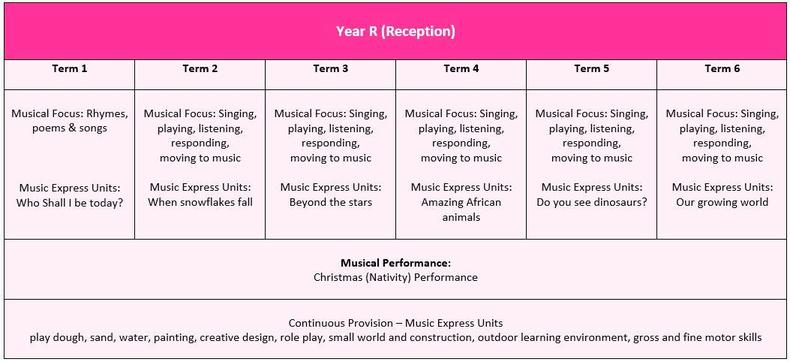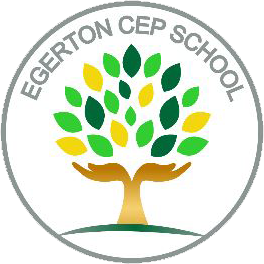Music
What is Music?
Psalm 95:1
"Come, let us sing for joy to the LORD; let us shout aloud to the Rock of our salvation."
Music is a creative and inspiring subject, which teaches children about rhythm, expression and confidence. A high-quality music education should engage and inspire pupils to develop a love of music and their talent as musicians, and so increase their self-confidence, creativity and sense of achievement.
Intent
At Egerton, we understand the benefits of music education are highly beneficial to students and positively influences a child’s academic performance, assists in developing social skills, and provides an outlet for creativity that is crucial to a child’s development. Our music curriculum provides children with the opportunities to develop a love and curiosity for music as they listen to, compose, perform and appraise a range of musical genres in order to allow them to experience many different styles of music. Children will gain knowledge about music creation through singing and learning to play musical instruments. Children will be provided with opportunities to listen and appraise a variety of musical styles alongside performing pieces and creating their own compositions through the use of instruments and technology. We aspire for children to grow in confidence as they progress through the musical curriculum and become passionate in their responses to music.
Through high quality teaching, we develop the following essential characteristics of musicians:
- Explore on their own and with others the creative process as they create and compose music
- Appreciate the role of technology when composing and listening to musical arrangements
- Apply the skills taught when learning a musical instrument and appreciate that practise and focus are needed to make progress
- Understand and explore how music is created, produced and communicated
- Listen to, review and evaluate the work of great composers and musicians from a range of historical periods, genres, styles and traditions
- Enjoy and have an appreciation of a range of different musical styles
- Use and understand musical language and include musical features in their own work
- Make judgements about the quality of music
- Take part in performances
- Use musical vocabulary accurately
- A genuine interest in music and develop a life-long love of music
Implementation
Music is taught termly but we also aim to integrate music into other areas of the curriculum as well as during our school worships.
Our music curriculum aims to enable children to develop their skills as musicians as they create, compose and performance pieces of music. Classes will follow selected units from the Musical Express curriculum that complement and enhance learning from across the curriculum.
Music is important in the Early Years Foundation Stage as it helps children’s development in several areas. Children will sing songs and rhymes together to develop children’s communication and language skills in a fun and engaging way. Music is also excellent for children’s physical development and children will learn to move in a range of new ways as they dance in time with the music, or play music instruments to a tune.
The music curriculum is planned so that children learn to play musical instruments as we recognise this is an enriching activity, which supports children’s concentration, memory and reading skills. Children in Years 1 to 4 will learn the ukulele and either the recorder or ocarina, and children in upper key stage 2 will focus on developing their own style as they continue to learn the ukulele.
The school supports and takes part in the local tri-annual community event: Egerton Arts and Music Week. Children take part in a programme of events such as listening to local artists play and creating music with them.
Impact
-
Be confident performers, composers and listeners and express themselves musically at and beyond school
-
Show and an appreciation and respect for a wide range of musical styles from around the world and understand how music is influenced by the wider cultural, social, and historical contexts in which it is developed
-
Understand the ways in which music can be written down to support performing and composing activities
-
Demonstrate and articulate an enthusiasm for music and be able to identify their own personal musical preferences
-
An appreciation of local musicians and out-of-class opportunities to explore music
-
Continued training and support for teachers ensuring that they are the experts in the subject that they teach.
Music Curriculum



